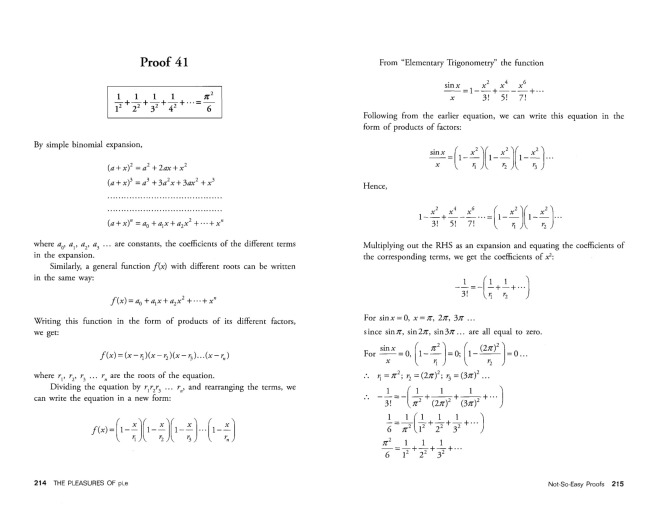About 2.5 years ago I had promised Joseph Nebus that I will write about the interplay between Bernoulli numbers and Riemann zeta function. In this post I will discuss a problem about finite harmonic sums which will illustrate the interplay.
Consider the Problem 1.37 from The Math Problems Notebook:
Let
be a set of natural numbers such that
, and
are not prime numbers. Show that
Since each is a composite number, we have
for some, not necessarily distinct, primes
and
. Next,
implies that
. Therefore we have:
Though it’s easy to show that , we desire to find the exact value of this sum. This is where it’s convinient to recognize that
. Since we know what are Bernoulli numbers, we can use the following formula for Riemann zeta-function:
There are many ways of proving this formula, but none of them is elementary.
Recall that , so for
we have
. Hence completing the proof
Remark: One can directly caculate the value of as done by Euler while solving the Basel problem (though at that time the notion of convergence itself was not well defined):

The Pleasures of Pi, E and Other Interesting Numbers by Y E O Adrian [Copyright © 2006 by World Scientific Publishing Co. Pte. Ltd.]

You must be logged in to post a comment.